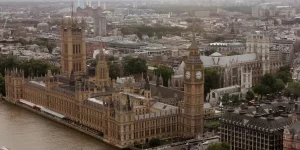Last week Aurora Energy Research published a report that questions the UK’s reliance on interconnectors to secure its energy supply. The report called on policy-makers to improve their evaluation of the risks of relying on links with other networks in Europe. ‘Energy Security in An Interconnected Europe’ [1] contends that interconnection can make a positive contribution to supply but only if the right policy framework is in place.
Aurora has highlighted the difficulty of relying on interconnectors in a stress event.
The Capacity Market was created to ensure electricity continues to be delivered when it is needed whilst the UK replaces older power stations and introduces more intermittent and inflexible low carbon generation sources [2].The government has allowed interconnectors to participate in the Capacity Market since 2015 [3] and Britain’s electricity market currently has 4GW of interconnector capacity [4]. However, Aurora’s assessment is that interconnectors have historically failed to deliver on their obligations to supply power, often when demand has been at its highest.
Altering de-rating methodologies to better assess the deliverability of capacity market units.
Fundamentally, interconnectors are not generators but transmission assets. Unlike domestic generators that are able to dispatch energy on demand, flows through interconnectors are driven by the policies and economics of two neighbouring markets. Consequently, supply cannot always be guaranteed. Aurora’s analysis is that Government should adopt an approach to de-rating that better accounts for these risks.
‘Calculating the contribution of interconnectors is “critical to security of supply and the consequences of error are high.”’ [5] The focus of securing the UK’s energy supply is intensifying ahead of the five-year review into the Capacity Market which takes place later this year [6]. Government is likely to take notice of this report and now is the time for all companies involved to influence the debate.
[1] Aurora Energy Research, Energy security in an interconnected Europe, 25 May 2018, link [2] Gov.uk, Capacity Market 2016, link [3] Gov.uk, Consultation on Capacity Market Supplementary Design Proposals and Transitional Arrangements, link [4] Ofgem, Electricity interconnectors,link [5] Bloomberg, 24 May 2018, link [6] Business Green, 20 March 2018, link




